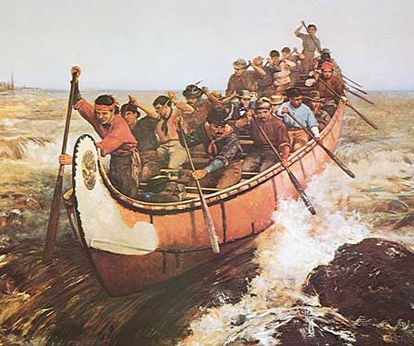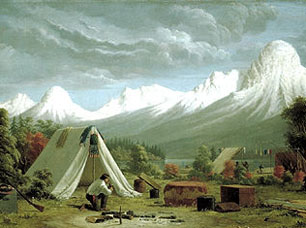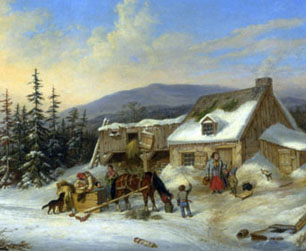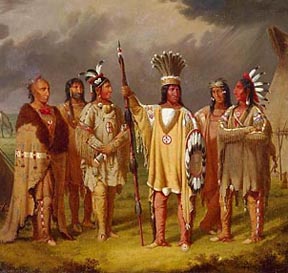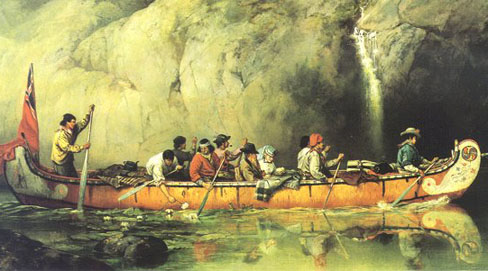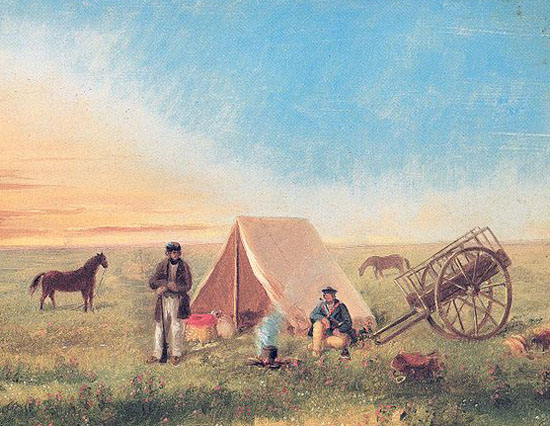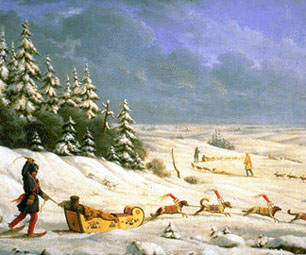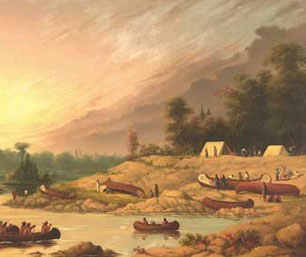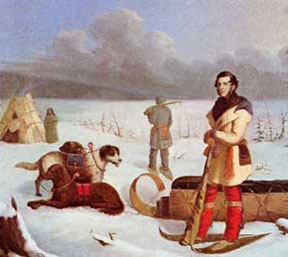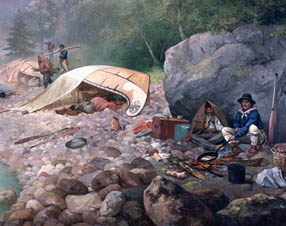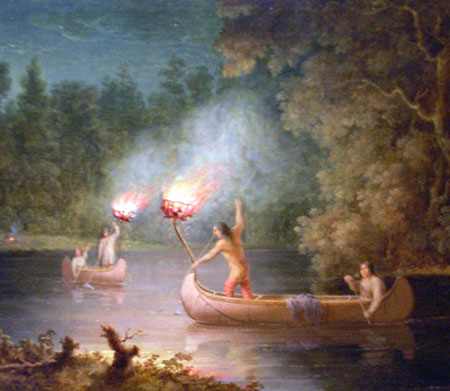A debate on the future of the British monarchy in Canada has put down roots .. and it’s not going away
Jul 24th, 2013 | By Counterweights Editors | Category: Canadian RepublicYesterday a Toronto Star editorial opined : “Welcome to the world, eight-pound, six-ounce royal baby boy. While untold others were born on the same day to equally excited parents, no one else is third in line to the throne …” (Ultimately, the future George VII of some place, it has subsequently become clear.)
At the same time, a poll on the Yahoo Canada site, was asking “Is the media going too far with royal baby excitement?” And this showed 75% answering Yes – and only 25% No.
Someone at the Edmonton Journal may have devised the most apt headline, with “It’s a boy! Edmonton monarchists celebrate new addition to Royal Family.”
Meanwhile, back in the city Canadians love to hate, in the stodgy old Globe and Mail the abject royalist John Ibbitson offered some dour reflections under the kind of bullying headline monarchists like so much, “Sorry republicans, the monarchy is here to stay.”
Both Mr. Ibbitson and certain Toronto Star editorialists believe that : “Polls in the past few years show Canadians are generally supportive of the monarchy, by a bare majority.”
They seem to have missed the Harris-Decima poll conducted for Your Canada, Your Constitution this past February. This showed that “55% of Canadians want change to Canadian head of state instead of continuing with any member of the British royal family … Only 34% want royal family member to continue to be Canada’s head of state as federal Conservatives have proposed in questionably unconstitutional Bill C-53.”
1. Quebec’s challenge to the new Canadian royal succession law
As far as the questionably unconstitutional Bill C-53 goes, we have also just heard that the “federal government says it will defend its new royal succession law as the province of Quebec joins two Quebec professors who are mounting a constitutional challenge.”
This new Canadian royal succession law simply assents to British legislation that would allow an older daughter to succeed to the throne over her younger brother.
Practically, all this is much less important, now that we know we are dealing with an eight-pound, six-ounce royal baby boy! (A George, and not a Georgette.) But the two Quebec professors are arguing that the new Canadian royal succession law is nonetheless unconstitutional, because it failed to obtain the approval of all 10 provincial legislatures, as required for changes to “the office of the Queen” by Canada’s new (or “patriated”) Constitution Act, 1982.
The federal government says that the new Canadian royal succession law which simply assents to British legislation does not amount to a change to “the office of the Queen” in Canada. And some eminent constitutional law authorities agree.
Yet as a commenter on John Ibbitson’s article has nicely explained : “the challenge being mounted in Quebec is significant. The law the feds passed essentially says Canada will recognize whoever the British head of state is as our own. It’s an acknowledgement that we recognize a foreign monarch as Queen/King of Canada. A true absurdity if ever there was one.”
It is also a last vestige of Canada’s old colonial personality. And the legal wrangling could go on for years. (It is interesting as well that the Harris-Decima poll conducted for Your Canada, Your Constitution this past February shows a whopping 79% of people in Quebec want “change to Canadian head of state instead of continuing with any member of the British royal family.” How someone as intelligent as John Ibbitson, in his less ideological moments, can seriously imagine that the British monarchy can be “here to stay,” in any united Canada of the 21 st century that includes Quebec, is altogether beyond our comprehension. Or, as others might say, what are the monarchists smoking?)
2. Charter challenge to the current citizenship oath to the Queen in Ontario
Another recent court case raises somewhat parallel issues. And here the Toronto Star has run a recent editorial on the side of the Canadian patriotic angels.
More exactly, the editorial notes : “It’s annoying, to say the least, that three would-be Canadian citizens have gone to court to have the oath of allegiance to the Queen declared unconstitutional … What gives a handful of non-citizens the right to change the rules for everyone else? …But however irksome the case appears, fundamentally the trio that took it to Ontario Superior Court make an important point. People who become Canadian citizens, and meet all the requirements that go along with that, should indeed be able to affirm their commitment first and foremost to their new country – not to the head of state, regardless of who she or he may be.”
Similarly, the stodgy old Globe and Mail, which several days ago ran a very aggressively pro-monarchist editorial on the same subject, tried to show it still has some sense of balance this past Monday, with a comment piece by Ratna Omidvar (“president of the Maytree Foundation” and “a member of the Order of Canada and the Order of Ontario”), called ”Citizenship oath: Let’s pledge to Canada, not to Her Majesty.”
Those who watch such things closely say that the current court case in Ontario is not all that likely to succeed. Successful legal activism of this sort depends a lot on the judges involved. And the three would-be Canadian citizens have arguably not been as lucky this time around, as they (and/or their predecessors) have been in earlier phases of the case.
Yet progress in broader public opinion is in the air. The Toronto Star editorial has also urged that “our Commonwealth cousins in Australia are way ahead of us on this. Back in 1994 they dropped the oath to the Queen in favour of an elegant and rather moving ‘Pledge of Commitment’” (to “Australia and its people” alone – though not everyone agrees that even this is perfect).”
The editorial goes on : “Canada deserves no less. Regardless of the outcome of the latest court case, freshly minted Canadian citizens should have an opportunity to affirm their loyalty to their new country and promise to uphold its laws and values.”
3. The “long process of decolonization that Canada has undergone since 1867”
Back in the mid 1990s, the Canadian legal scholar Brian Slattery wrote about “the long process of decolonization that Canada has undergone since 1867.” Politely retiring the British monarchy in Canada is the very last step in this long process.
This is, if you like, built into the evolving DNA of the 1867 Canadian confederation – like such things as the 1931 Statute of Wesminster, the first Canadian Citizenship Act in 1947, the final establishment of the Supreme Court of Canada as the highest Canadian court of appeal in 1949, the first Canadian-born governor general in 1952, the independent Canadian flag in 1965, the second Canadian Citizenship Act in 1977, and the almost final “patriation”of Canada’s Constitution from the United Kingdom, with the Constitution Act, 1982.
As far as we’re concerned, to imagine that you can somehow stop this process, in such a way that the British monarchy in Canada lasts forever, is the ultimate impossible dream. To accede to this dream is to give up on any kind of serious Canadian future – and just see Canada as a minor extension of the United States, that never abandoned the British monarchy. The ultimate manifest destiny of this kind of continuing crypto-colonial Canada, in our view, can only be what amounts to some form of practical or de facto annexation to the USA at last.
(Here we’d point as well to another recent Toronto Star column, by the stalwart Canadian patriot, Bob Hepburn : “Stephen Harper’s love for Canada’s colonial past: Hepburn … As Harper moves to promote our outdated British ties with silly moves such as ridding the army of the Maple Leaf insignia, most Canadians have long tired of honouring the British royalty and traditions …”)
At the same time again, we’d agree with many critics of the emerging Canadian republican (or Canadian republic) paradigm that the ultimate fruition of “the long process of decolonization that Canada has undergone since 1867” remains some considerable distance ahead.
The republican option in Canada today still has no widely shared view of a solution to what the recent Toronto Star editorial “Welcome to the new prince …” calls “a pragmatic recognition that finding a workable alternative we can all agree on [to the present ‘royal system’ in Canada] would be close to impossible.”
4. It’s true enough that monarchists are stronger outside Quebec (and republicans are still quite immature, everywhere) … but …
We just don’t agree with this so-called pragmatic recognition. Consider, eg, the now quite time-tested alternatives to a monarchical apex for a parliamentary democracy in such other former British dominions as India and Ireland – or the related May 2012 Harris-Decima poll for Your Canada Your Constitution, which found that a “total of 67% of Canadians would support a new elected position to replace the Governor General and lieutenant governors.” (And this is the most obvious beginning for just the kind of alternative to the monarchy the Toronto Star alludes to.)
But it is nonetheless true enough that those of us who are committed to a Canadian republican future should be working hard to cultivate some consensus on a particular “workable alternative” to the monarchy in Canada that “we can all agree on.” And so far this remains just a vague aspiration for the long term future.
It is similarly true enough that outside Quebec the current polling debate between monarchists and republicans is still a closer contest than when the Quebec numbers are added to create a cross-Canada total. (Surprise, surpise??)
So … it is correct that, in the February 2013 Harris-Decima poll “55% of Canadians want change to Canadian head of state instead of continuing with any member of the British royal family … Only 34% want royal family member to continue to be Canada’s head of state.”
Yet it is also true that in this poll only “48% of people outside Quebec want this change [ie ‘to Canadian head of state instead of continuing with any member of the British royal family’] (39% in BC), while only 39% want to continue with royal family member (53% in BC).”
In the summer of 2013 it is still striking that (outside beautiful BC, in this poll at least) more Canadians even outside Quebec want to see a Canadian head of state alternative to the British monarchy, than want to continue with the present system. But we remain some distance away from the decisive popular majority for this objective– inside and outside Quebec – that will certainly be required to get around the practical difficulties of abolishing the monarchy, over which John Ibbitson and other monarchist supporters are so keen to shed crocodile tears.
So … a lot of hard work lies ahead for Canadian republicans. Yet …
For a brief period, the ultimate celebrity wedding of William and Kate did seem to boost support for the British monarchy in Canada somewhat. Most recently, however, the gradual rising polling data momentum for the republican option – broadly evident since the middle of the 1990s – has reasserted itself. Another commenter on Ibbitson’s latest monarchist article puts it this way: “Where there’s a will there is a way. Procedural wrangles can be overcome if people feel strongly … the debate has begun, and that’s a healthy sign.”
John Ibbitson and most of us writing here may have moved on to the next universe by the time the very last t has been crossed on the ultimate abolition of the British monarchy in Canada.
But the old monarchy up in the northern North American wilderness is only here to stay in the minds of the dwindling supply of romantic (and even anti-democratic) monarchists, who refuse to give up on the impossible Peter Pan dream of perpetual political childhood, coast to coast to coast! The plain truth is that Peter Pan is a fantasy, of course. And in the 21st century so is the British monarchy in Canada.
The illustrations for this post are taken from the 19th century Canadian paintings of Frances Hopkins, Paul Kane, and Cornelius Krieghoff.
